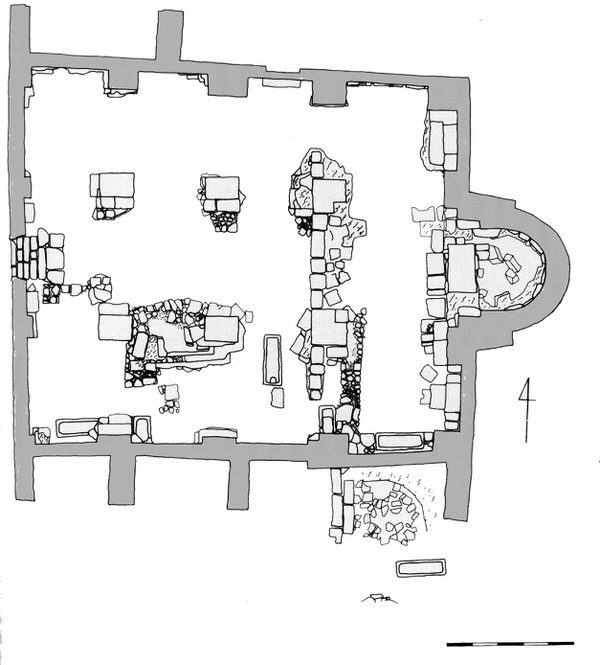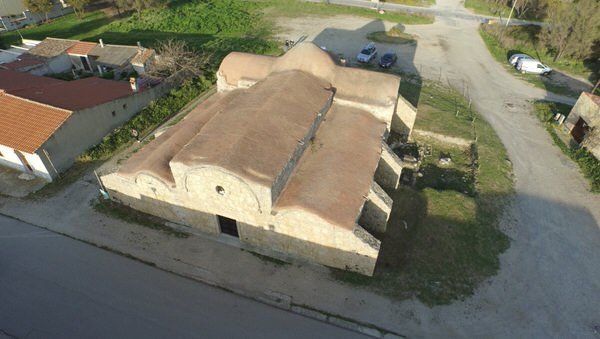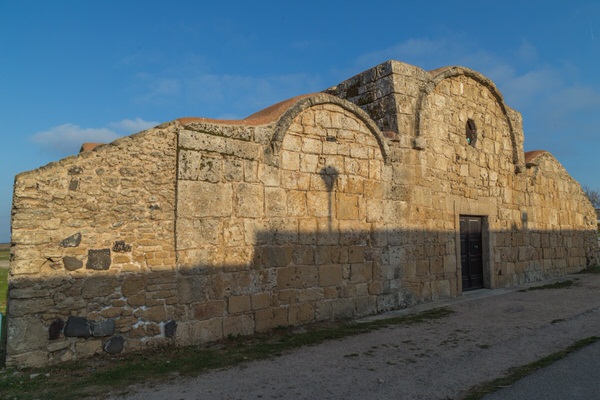The church of San Giovanni
In Roman Times, the roads outside the cities were usually the site of necropolises arranged along the roadside, and about one kilometre north of Tharros, a pagan, then Christian necropolis stood where San Giovanni di Sinis now lies. In the 6th-7th century A.D., a small Paleo-Christian basilica was probably built in this burial area, the remains of which have been found underneath the current church of San Giovanni, that used part of them as foundations (figs. 1-3).



The current aspect of the church comes from the transformation of the first building, that had a crucifix shape. The longitudinal arms were cut; the one heading east was turned into an apse, and the church was divided internally by three aisles (figs. 4-8)





Most of the stone blocks used to construct the first building linked to the necropolis and the later church were taken from the city of Tharros, which had fallen into ruin by that time, following a custom found in many other sites.
The church of San Giovanni, in its current form, has been generally dated to the Proto-Romanesque Era, around the 10-11th century, based on the structural aspects of the apse and the presence of mullioned windows in the apse and transept.
Bibliografia
- R. CORONEO, Architettura romanica dalla metà del mille al primo ’300, Nuoro 1993, pp. 42-44.
- R. CORONEO, San Giovanni di Sinis, in V. FISHER (ed.), Chiese cruciformi bizantine della Sardegna, Cagliari 1999, pp. 37-39.

 VR
VR